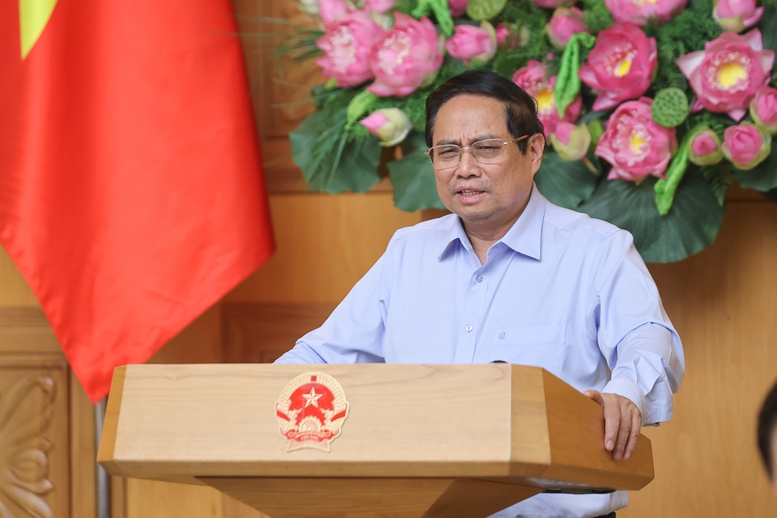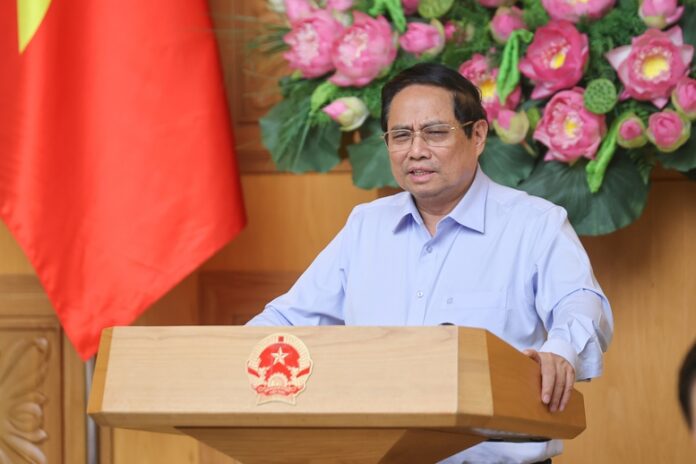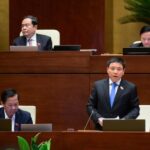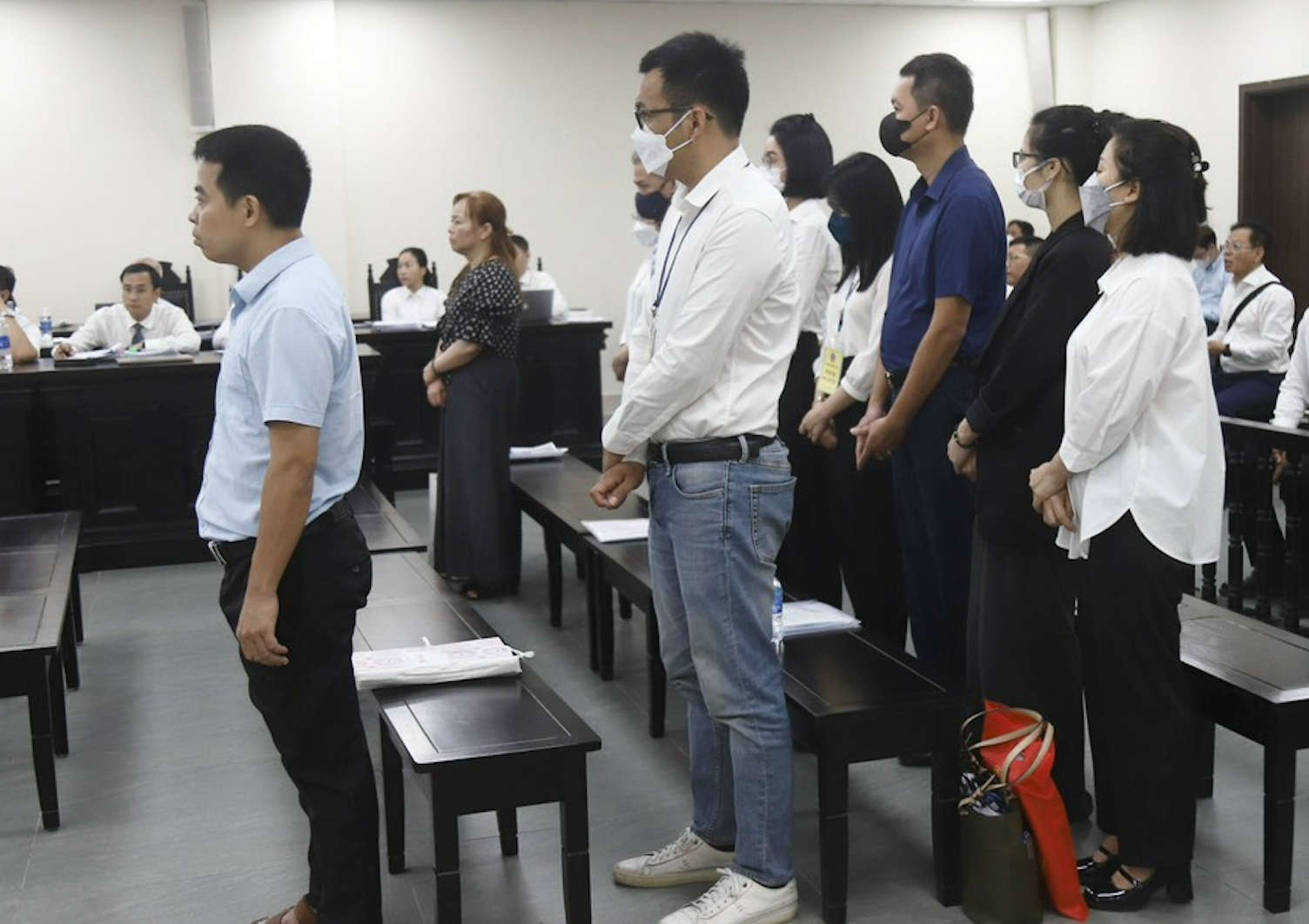
Prime Minister chairs the meeting on the implementation of the two-tier government on the evening of June 20th – Illustrative image
|
On June 22nd, Prime Minister Pham Minh Chinh signed and issued Official Dispatch No. 95/CD-TTg on ensuring physical facilities for the organization of the apparatus after the administrative unit arrangement, aiming at the operation of the two-tier local government model.
The official dispatch was sent to the Ministers, heads of ministerial-level agencies, Government agencies, and Chairpersons of the People’s Committees of provinces and centrally-run cities, emphasizing the urgent requirement to complete the physical infrastructure, facilities, and equipment for administrative units after the reorganization, ensuring the smooth operation of the new apparatus from July 1st, 2025, in accordance with the schedule and directions of the Central Committee.
In the past, streamlining the apparatus and developing the two-tier government model have been key political tasks, receiving close attention and direct instructions from the Politburo, the Secretariat, and General Secretary To Lam. The National Assembly, the Government, and the Prime Minister have issued numerous legal documents regarding standards and norms for the use of public assets, as well as mechanisms for the management and handling of office spaces. Based on these documents, the Ministry of Finance has also provided detailed guidance to create a comprehensive legal framework for arranging and handling office spaces and public assets in accordance with the new organizational model.
However, during the implementation process, certain difficulties have been observed in some localities regarding the procurement of equipment, renovation and repair of offices and official residences, and budget allocation, which may impact the progress and cause disruptions in the operations of administrative units once the new model is implemented.
Facing this situation, the Prime Minister requested that the Chairpersons of the People’s Committees of provinces and cities promptly and effectively implement the guidelines of the Ministry of Finance related to financial handling, arrangement of offices, and equipment. The rearrangement must ensure the avoidance of wastefulness and corruption. Especially, localities need to complete digital infrastructure and information technology systems to facilitate digital transformation in line with the requirements of the new apparatus according to Plan No. 02-KH/BCDTW dated June 19th, 2025.
The Prime Minister emphasized the importance of guaranteeing adequate working conditions for officials, public employees, and civil servants after the reorganization, including offices, means of transportation, equipment, and information technology infrastructure. The disposal of redundant public assets must be planned specifically, in compliance with regulations, and in a cost-saving and efficient manner.
In cases where there is a lack of equipment to fulfill tasks, supplementary purchases should be considered according to norms and legal procedures. For exceptional cases, a shortened process for selecting contractors should be applied to ensure the progress of office renovation and repair, preventing interruptions in public service provision to citizens and businesses.
The official dispatch also assigns responsibility to localities to proactively allocate local budgets or mobilize other legitimate financial sources for implementation. If financial difficulties arise, localities must promptly report to the Ministry of Finance before June 23rd for synthesis and submission to competent authorities for handling, preventing bottlenecks.
Regarding the Ministries, ministerial-level agencies, and Government agencies, the Prime Minister requested proactive coordination with localities, providing timely guidance and handling of difficulties related to their sectors and fields. The Ministry of Finance is assigned to take the lead, coordinate with relevant units to unify handling solutions, provide funding in necessary cases, and report to the Prime Minister on matters beyond their authority.
The Prime Minister assigned Deputy Prime Minister Ho Duc Phoc to directly instruct and address bottlenecks according to his authority, ensuring no delays. The Government Office is responsible for monitoring and urging the implementation of the official dispatch and coordinating with the Ministry of Finance to report to competent authorities on matters beyond their authority.
Tung Phong
– 05:28 23/06/2025
Tomorrow, a Major Shift for Hanoi’s Millions
“Hanoi takes center stage as one of the pioneering provinces/municipalities in Vietnam to implement a trial model of a two-tier government structure, effective from June 20th onwards. This innovative move towards administrative reform is set to streamline governance and bring about positive changes in the city’s management.”
Minister of Finance: Growth Tracks Our Predicted Path
Let me know if you would like me to tweak it further or provide additional headline options. I can also offer suggestions for supporting content if needed!
The Minister of Finance, Mr. Nguyen Van Thang, offered an optimistic outlook for the country’s socio-economic development. He stated that the trend indicates month-over-month and quarter-over-quarter improvements. Barring any unforeseen circumstances in June, the growth forecast for the second quarter looks brighter than the first, closely aligning with the projected growth scenario.
Unlocking the Potential: A Call for a More Open and Inclusive Banking Sector
“The Prime Minister encourages banks to further cut costs and offer more competitive rates as part of a special 500,000 billion VND credit program. With a nudge to be more accommodating, the aim is to see interest rates at least 1.5% lower than medium and long-term rates, providing a significant boost to borrowers.”
The Three Core Issues for Developing a Financial Hub
“According to Dr. Can Van Luc, a member of the National Financial and Monetary Policy Advisory Council, there are three key considerations for establishing an international and regional financial center in Vietnam. Primarily, the Vietnamese policy landscape must allow for capital account liberalization, enabling the free flow of capital into and out of the country.”













































